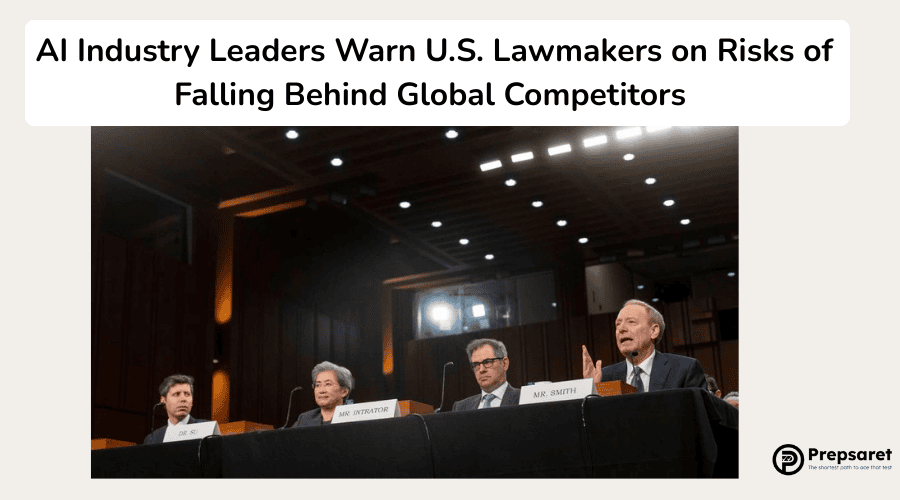Highlights:
- U.S. lawmakers and tech executives see AI as a transformative force for global society and security.
- There are bipartisan concerns about America’s competitiveness against China and the EU in AI development.
- Executives warn that restrictive U.S. trade policies could backfire by pushing global partners toward Chinese technology.
- Energy demands for AI infrastructure are rising, with Texas emerging as a key player in hosting large-scale AI data centers.
- Industry leaders advocate for a single, streamlined federal regulatory framework to accelerate AI innovation.
The U.S. Senate hosted a high-profile hearing this week featuring top tech executives, including OpenAI CEO Sam Altman, Microsoft President Brad Smith, AMD CEO Lisa Su, and CoreWeave’s Michael Intrator, to discuss the future of artificial intelligence.
The hearing highlighted both the vast potential and significant challenges facing the U.S. as it seeks to maintain leadership in a rapidly evolving global AI race.
Altman told senators that AI is poised to be “at least as big as the internet, maybe bigger,” emphasizing that continued investment in infrastructure and energy is critical for this transformation. He urged policymakers to support the dual revolutions of AI and energy production, describing them as key drivers of societal change.
Lawmakers Weigh Competition With China and the EU
Senators on both sides of the aisle expressed concerns about losing ground to China, which aims to lead the world in AI by 2030. “The United States is facing a fork in the road,” warned Sen. Ted Cruz, highlighting the strategic choice between American innovation and European-style regulatory frameworks.
However, the hearing was not without political friction. Some Republicans questioned whether the Biden administration’s energy policies were slowing AI infrastructure development, while Democrats criticized past funding cuts under President Trump and Elon Musk as damaging to U.S. research capacity.
Despite political differences, senators and industry leaders agreed that the stakes are high. “We’re trying to win a race so that American values prevail,” said Sen. Brian Schatz.
Trade Restrictions Could Backfire, Industry Leaders Say
A major concern raised by executives was the impact of U.S. export restrictions on AI chips. Su warned that overly aggressive controls could push other countries toward less advanced but improving Chinese alternatives. Altman echoed this, emphasizing that U.S. global influence relies on widespread adoption of American technology.
Recent export restrictions have already affected chipmakers like Nvidia and AMD, with projected revenue losses of $5.5 billion and $1.5 billion, respectively.
New rules from the Biden administration, targeting over 100 countries, are expected to take effect next week, though the Trump administration has promised a simpler replacement.
State-Level Incentives and the Push for Federal Regulation
The hearing also spotlighted Texas, where OpenAI is building what Altman described as the world’s largest AI training facility. He praised Texas’ incentives for supporting major AI projects, suggesting other states could follow its example.
Yet, Altman cautioned against fragmented state-level regulation, advocating instead for a single, clear federal framework to enable rapid innovation. “One federal framework that is light touch… seems important and fine,” he said.
With AI’s growing energy demands—potentially consuming up to 12% of U.S. electricity by 2028—lawmakers face mounting pressure to balance innovation with infrastructure and environmental concerns.
Also in the news:
Looking to boost your IT career? Check out CompTIA study resources that can assist you in achieving your certification goals with in-depth materials and practice tests.

